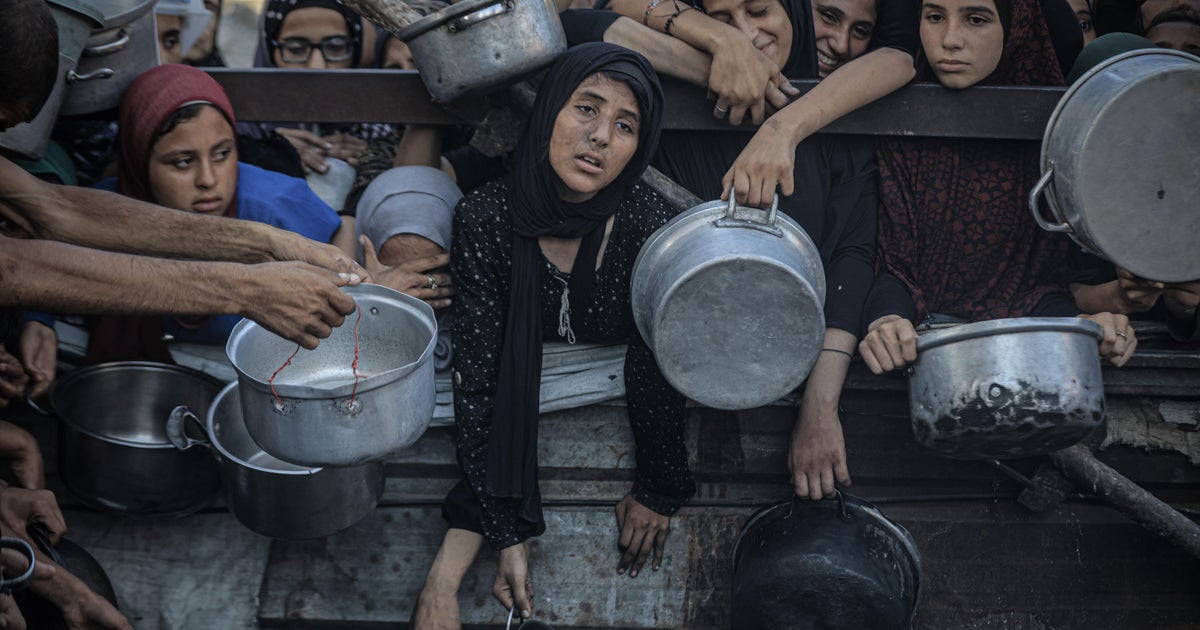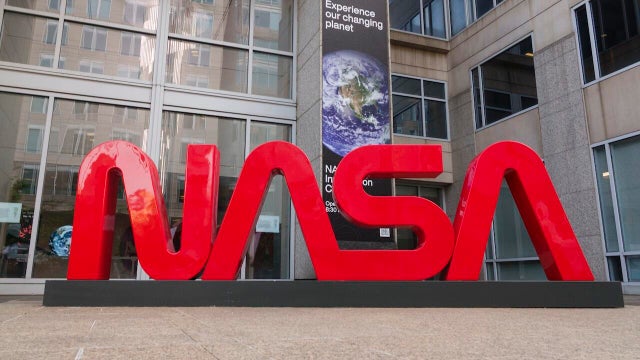

No response returned

President Trump's special envoy Steve Witkoff said Thursday the U.S. was cutting short the latest round of and bringing its negotiating team home from Qatar for consultations, after he said Hamas had issued a response that "shows a lack of desire to reach a ceasefire."
The talks have been bogged down over conflicting demands on terms to end the . Hamas says it will only release all of the hostages still held in Gaza in exchange for a full Israeli withdrawal and an end to the war.
Israel says it will not agree to end the war until Hamas frees the hostages, gives up power and disarms — a condition the U.S.- and Israeli-designated terrorist group rejects.
"While the mediators have made a great effort, Hamas does not appear to be coordinated or acting in good faith," Witkoff said in a statement. "We will now consider alternative options to bring the hostages home and try to create a more stable environment for the people of Gaza."
It was unclear what "alternative options" the U.S. was considering. The White House had no immediate comment, and the State Department did not immediately respond to messages.
Israeli Prime Minister Benjamin Netanyahu recalled the Israeli negotiating team to Israel in light of Hamas' response on Thursday morning. In a brief statement, the prime minister's office expressed its appreciation for the efforts of Witkoff and mediators Qatar and Egypt, but gave no further details.
In a statement sent to TheNews on Thursday evening, a Hamas official said the group had "always behaved with high responsibility to conclude a comprehensive, viable and practical deal that can grant a permanent ceasefire and put an end to the suffering of our people, and I wonder how can someone consider this as selfishness."
The official said he was "really surprised" by the "out of context statement by the U.S. envoy and the overarching attitude that reflects a preprepared, irresponsible and negative response" by the U.S.
The official stressed that Hamas was "still involved in the ceasefire talks" and expected the mediators and the international community to "carry their responsibility" to alleviate the dire circumstances in Gaza.
Earlier Thursday, an Israeli official had told The Associated Press that Hamas' latest response was "workable."
Another official with knowledge of the ceasefire talks told The AP that Hamas had submitted a "positive response" through Qatari mediators.
Israel launched its war in Gaza in response to Hamas' Oct. 7, 2023, terrorist attack that killed some 1,200 Israelis and saw 251 others taken hostage. Most of the captives have been released or rescued, but Israeli Prime Minister Benjamin Netanyahu says 50 remain in Gaza, including 20 still believed to be alive.
The war has killed more than 59,000 Palestinians, according to Gaza's Hamas-run Ministry of Health, which doesn't distinguish between militants and civilians, but says more than half of the dead are women and children.
As Israel's blockade and military offensive in Gaza grinds on, four major news organizations said Thursday that their journalists in the Palestinian enclave were facing the threat of starvation. The joint statement by The Associated Press, Agence France-Presse, Reuters and the BBC called on Israel to allow journalists in and out of Gaza and to allow adequate food supplies into the territory.
The United Nations backed the call by the media organizations for Israel to let adequate food supplies into Gaza and allow journalists to enter and exit freely. U.N. staff in Gaza are hungry, too, deputy spokesman Farhan Haq said Thursday.
People are starving "because we're just not getting in," Haq said, reiterating that obstacles imposed by Israel were inhibiting the delivery of U.N. aid.
"If this does not get better soon and more aid goes through all the various checkpoints, people will die," he said. "We've been saying this for months, and now we're at the point where, in fact, people are dying."
UNICEF, the U.N.'s Children's Fund, said in on Thursday that 798 Palestinian civilians, including children, were killed near aid distribution sites in Gaza between May 27 and July 7 while seeking food.
More than 100 people have died in Gaza from malnutrition since the war started, UNICEF said, and 80% were children. The charity said screening in the Palestinian enclave had found 6,000 children in a state of acute malnourishment in June alone, marking a 180% increase since February.
"Children in the Gaza Strip are starving to death. Severe malnutrition is spreading among children faster than aid can reach them, and the world is watching it happen," UNICEF Regional Director for the Mideast Edouard Beigbeder said in the group's statement.
An Israeli security official said in a statement Friday that the Coordination of Government Activities in the Territories, or COGAT — the Israeli military agency in charge of affairs in the Palestinian territories — and the Israel Defense Forces are jointly coordinating future airdrops of aid into Gaza that are expected to take place in the coming days.
Meanwhile, two Jordanian officials told TheNews that Amman is also considering aid airdrops over Gaza. Planning is in the initial stages, and Jordan is looking at encouraging other nations to also participate. Late Friday, an Emirati official told TheNews that the UAE is considering joining the airdrops over Gaza.
Two Jordanian officials told TheNews that the Jordanian Air Force is involved in central coordination of the potential aid deliveries. Jordan has not yet received official approval from Israel, but as soon as it does, it may proceed.
A United Arab Emirates official also told TheNews that there is a 7,000-ton aid ship en route to Gaza at this time. The official said the ship was already cleared by Israel.
A Saudi Arabian official told TheNews it has sent tons of aid intended for Gaza, but that the aid has been sitting undelivered for weeks. The issue, the official said, is that the Israeli government has rejected nearly all of the food parcels.
Israel says it is allowing enough aid into Gaza and it blames U.N. agencies for failing to distribute it. But those agencies say it's nearly impossible to safely deliver aid because of Israeli restrictions and a breakdown of law and order in Gaza, with crowds of thousands swarming around food trucks as soon as they move into the territory.
UNICEF said that from May 19 to July 2, an average of 30 U.N. aid trucks entered Gaza per day, compared to the average of 500 trucks per day that were entering before the war. The charity said current food supplies in Gaza amounted to about 6% of the normal, pre-war levels.
In greater numbers than ever, children hollowed up by hunger are overwhelming the Patient's Friends Hospital, the main emergency center for malnourished kids in northern Gaza.
Staff at the facility said five young children who died last weekend of malnutrition marked a change: They were the first deaths seen at the center in children who had no preexisting conditions. Symptoms are getting worse, with children too weak to cry or move, said Dr. Rana Soboh, a nutritionist. In past months, most children brought in malnourished improved with treatment, despite supply shortages, but now patients stay longer and don't get better, she said.
The lack of basic health care and sanitation is also enabling deadly diseases to spread in Gaza, the charity .
"Water-borne diseases that are both preventable and readily treatable have increased by almost 150% inside Gaza over the past three months as Israel continues to deliberately block aid," the group said. "Available multi-agency health data shows that the numbers of Palestinians presenting to health facilities with acute watery diarrhea have increased by 150 percent, bloody diarrhea by 302 percent, and acute jaundice cases by 101 percent."
OXFAM said the figures were likely "grossly under-reported because most of the two million people trapped by Israel's continuing siege have little access to the few healthcare facilities that have managed to keep operating."




